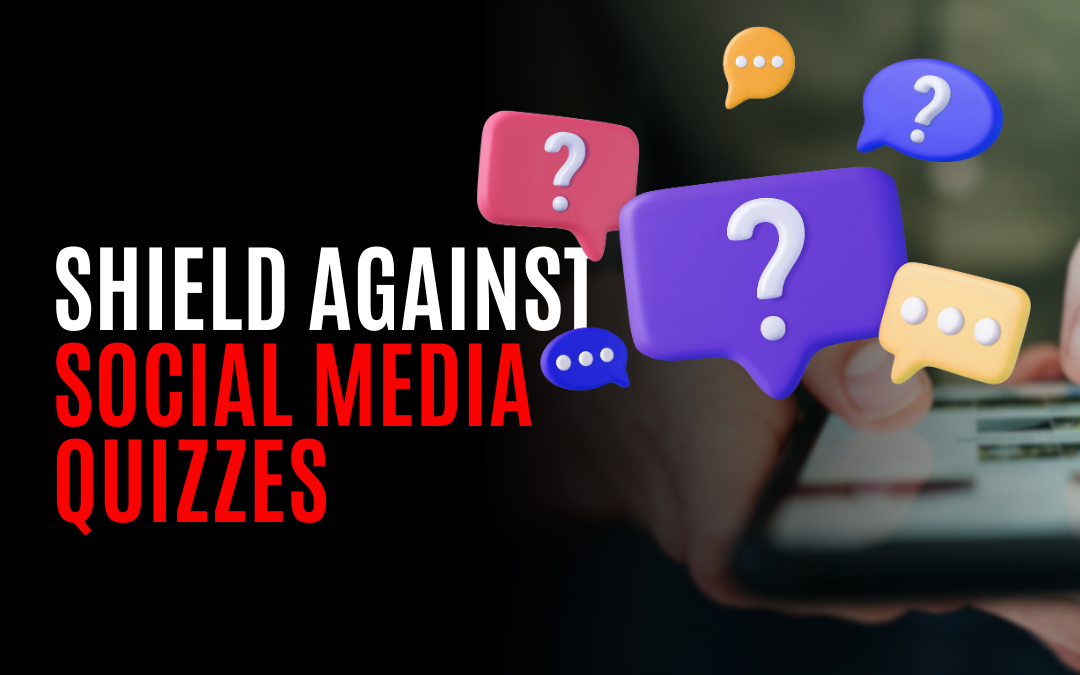We all love those fun quizzes on social media, right? You know, the ones that ask you to answer a few questions to find out which Game of Thrones character you are or what your spirit animal is. Well, I hate to break it to you, but those innocent-looking quizzes could be putting your online security at risk.
Now I know what you’re thinking – “Come on, buddy! What harm can answering a few silly questions do?” But trust me, this is important. Let me break it down for you so that by the end of this post, you’ll understand why these quizzes are actually dangerous and how to protect yourself.
Phishing Security Questions. Let’s start with the features here. When you answer these quizzes, more often than not they include security questions like “What was your first pet’s name?” or “What’s your mother’s maiden name?” These may seem harmless enough at first glance, but they’re actually little nuggets of gold for hosers looking to crack into your personal accounts.
Advantage: Gaining Personal Information. So what’s the advantage for these hosers? By tricking unsuspecting users into answering these seemingly innocent questions in a public forum like social media, hackers can gather vital pieces of personal information about their targets. With just a few answers from various quizzes or posts combined with other readily available data from public sources (yes folks, everything is searchable these days), hosers can piece together enough information to potentially guess passwords or even hijack accounts.
Alright now let’s get to the benefits – aka how we can protect ourselves against these sneaky attacks. First things first – NEVER ANSWER THESE QUIZZES! Just don’t do it, folks. It’s like waving a juicy steak in front of a pack of hungry wolves. Instead, take these simple steps to safeguard your online identity:
- Think Before You Click: Before giving away any personal information online, ask yourself: why do they need this information? Is there a genuine reason for them to ask? If in doubt, don’t give it out.
- Review Your Privacy Settings: Make sure your social media accounts are set to private and that you’re only sharing personal details with trusted friends and family. Remember, not everyone needs to know everything about you.
- Be Wary of Suspicious Links: If you come across a quiz that seems too good to be true or looks fishy (pun intended), think twice before clicking on any links or entering any information. It could be a phishing attempt disguised as innocent fun.
- Use Strong and Unique Passwords: This is important for ALL your accounts – not just social media. Avoid using easy-to-guess passwords like “password” or “123456.” And yes, I’m looking at you if you’re using the same password for multiple sites! Be smart and use a different strong password for each account. Use https://haveibeenpwned.com to check your passwords.
Need More Convincing?
Here are some eye-opening statistics that highlight the importance of protecting your online identity:
- According to Norton Security Study in 2020 , over 65% of internet users have been victims of cybercrime.
- A report by Verizon revealed that 32% of all security breaches involved phishing attacks.
- The Identity Theft Resource Center recorded over 1,500 data breaches in 2019 alone!
Now I don’t know about you, but those numbers sound pretty alarming to me.
So let’s recap here – answering quizzes on social media phishing security questions can lead hosers straight into our personal lives by gathering valuable pieces of information. But by being aware and taking simple precautions, we can protect ourselves from becoming victims.
Folks, I want you to stay safe out there. Don’t be fooled by these seemingly harmless quizzes. Remember, the internet can be a dangerous place, but knowledge is power. Spread the word and share this post with your friends and family so they too can protect themselves from falling into the clutches of those pesky hosers!
Now it’s your turn – have you ever encountered any suspicious quizzes on social media? What did you do to protect yourself? Share your experiences with me! And remember, stay vigilant and keep those hosers at bay.


